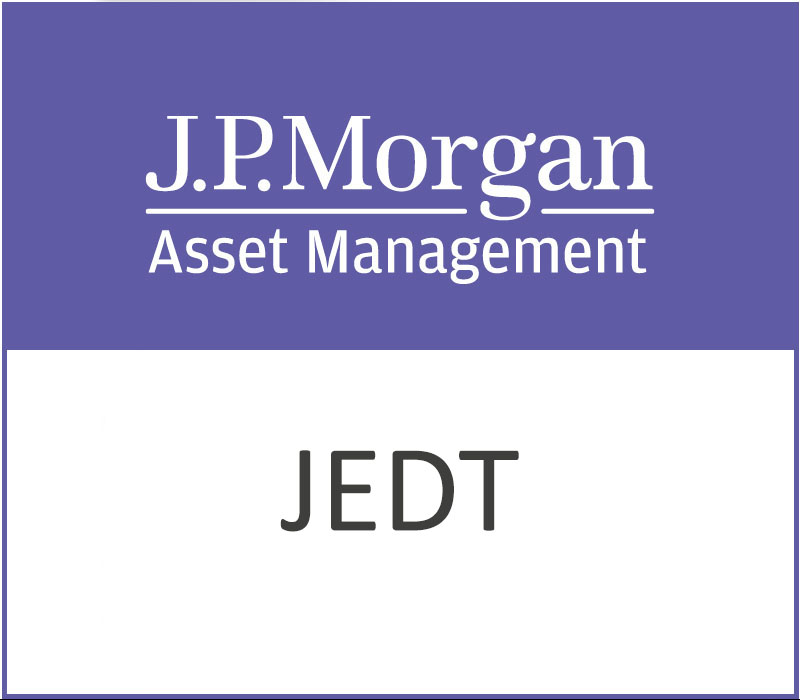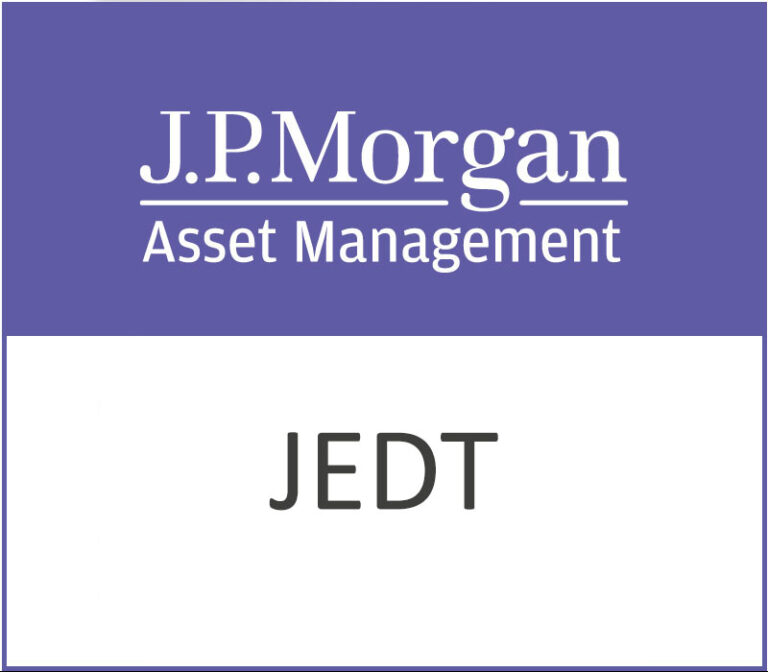JPMorgan European Discovery Trust plc (LON:JEDT) Portfolio managers Francesco Conte and Edward Greaves discuss what makes European stocks attractive right now and how they uncover hidden gems before they are discovered by the wider investing community.
Tell us about yourself and your role at J.P Morgan Asset Management?
Francesco: Welcome everybody. My name is Francesco Conte. I’ve had the privilege of managing the Trust for the last 25 years, since 1998 when I joined J.P. Morgan. And before that I worked for around 10 years, partly in mergers and acquisitions and partly on the sell side and analysis side.
Edward: Hello everyone, my name is Edward Greaves and I co-manage the Trust with Francesco. I joined J.P. Morgan in 2011 and I spent the entire time working on this Trust and prior to that I worked at an investment bank called Rothschild for four years.
Tell us about the trust, its heritage and its investment aims?
Francesco: The Trust’s objective has always been to invest in European smaller companies, so that those would be companies in Western Europe, developed Europe, with a market value today of a maximum of 7 billion euros. That has changed over time. When I started it was around one and a half billion. And what we’re really seeking to do is really find gems, companies in new sectors, in new industries that by definition are growing much faster because penetration of these products, of these services are growing much faster than GDP.
And so, whereas I think Europe is often associated with being a slow growing economy, a lot of the companies that we’ve invested in over the past and are currently invested in are growing far faster than the European economy because they’re also global. They tend to be leaders in niches, in sectors which are growing very rapidly.
How do you manage the trust?
Edward: We are bottom-up fundamental investors and our job is to uncover hidden gems before they are discovered by the wider investing community. We do this by utilising the global knowledge and technology of JP Morgan and this gives us fantastic access to hundreds of companies every year. We meet the CEOs, we meet the CFOs and we can discuss directly with them to get a thorough understanding of the strengths and weaknesses of the companies that we are looking to invest in.
In terms of our overweight, we currently overweight the consumer sector. We see a lot of fantastic companies in this area that suffered greatly last year as inflation cut consumer budgets. The valuations of these companies became very, very attractive and we saw a clear catalyst for recovery which was the wage growth that’s coming through and potentially a peak in inflation leading to growing real wages and we saw this as a fantastic investment opportunity.
So when looking at our country exposure, we’re completely agnostic. We can invest wherever we see the best opportunities. We’re often overweight France and Italy. These are countries with fantastic companies from a bottom-up perspective that are often overlooked when investors take a purely top-down view because they think of inefficient labour markets, they think of high tax rates and they don’t appreciate the fact that these two countries are full of many of the best companies in the world.
What does it take for you to have a high conviction in an individual stock?
Edward: When assessing the attractiveness of an investment, we review three criteria, valuation, quality and momentum. So addressing each of these in turn, starting with valuation, we really focus on free cash flow yield. We see this as the highest quality valuation metric because cash is king, cash is needed for investments, cash is needed for dividends. For quality, we want market leaders, we want companies with pricing power so they have a differentiated product or service. We appreciate asset-like businesses so limited capex and working capital needs and this means the companies can generate very high return on invested capital. We’re looking for very strong balance sheets and very importantly for us, we want management teams that have a great track record of capital allocation, so they really understand what part of their business generates the value.
To give an example, we own a company called SPIE which is listed in France which is an electrical installations company. SPIE is a very asset-light business, it’s a people business so it doesn’t really require capex or working capital. This means it generates a lot of free cash flow so it has a free cash rate yield of around 10% which is very attractive versus the benchmark. When looking at quality, the asset-light business model means it has a very high return on invested capital. The balance sheet is very strong and the management team have a great track record of focusing the business on the growing areas of the market so this is the energy transition and building energy efficiency.
And then turning to momentum, we see two clear drivers. The first is this exposure to electrification. The company helps governments invest in the energy grid, it helps the owners of commercial buildings improve the efficiency of their buildings. Management have recently reported strong results where they say the order backlog is as strong as it’s ever been and continues to strengthen month on month.
Would you tell us about the asset class and the outlook for JEDT?
Francesco: Historically, European smaller companies have been a really outstanding asset class in terms of returns and we don’t see any reasons why that should be different in the medium to long term. Yes, the last few years have been challenging. We initially went into lockdown, we came out of lockdown, we went back into lockdown. There were not enough employees when we came out of lockdown. There were, for example, massive shortages of chips that delayed all manner of products being produced. So today, when we look to the future, we see that things are finally starting to normalise.
The consumer companies we mentioned earlier on, we saw that in the second quarter, the COVID benefits and subsequent detraction has fallen out of the numbers. So as we look into the second half of this year, things are normalising on the positive side. On the negative side, of course, all this disruption around the world has led to very high inflation rates, which has meant that central banks have had to raise their rates in order to slow economies down.
So we’re in a strange situation where economies are slowing because of high interest rates. And yet the future actually looks quite bright. And the reason is that historically, when economies are slowing down, that is when central banks start to ease monetary policy.
So as we look over the next 12 months, we really should be near the peak of interest rates. And so that headwind should become less and less prevalent. In terms of what we see day to day, we expect new companies to come to market. Historically, we’ve had many waves of very interesting companies. We’ve seen luxury goods companies, we’ve seen companies involved in dental implants, hearing aids. We’ve seen different waves of technologies come to market. And this time, I think will be no different. In due course, I’m sure that we will see companies, for example, benefiting from AI, which is probably the biggest theme out there today. And so as we look to the long term future of the asset class, the future looks every bit as exciting as the past has been.
JPMorgan European Discovery Trust plc (LON:JEDT) aims to provide capital growth from a diversified portfolio of smaller European companies (excluding the United Kingdom). As the emphasis is on capital growth rather than income, shareholders should expect the dividend to vary from year to year. The Company has the ability to use borrowing to gear the portfolio within the range of 20% net cash to 20% geared, in normal market conditions.






































